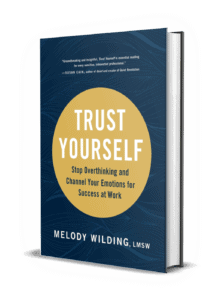Whether you’re new to job-hunting or a seasoned pro in your field, negotiation can feel stressful and uncomfortable for just about everyone.
Asking for what you deserve and asserting yourself in the workplace is challenging enough to begin with. Add the hot-button issue of money into the mix and the stakes are raised even higher.
Most of the mistakes women make in negotiation take place long before they even enter the conversation. In actuality, these common slip-ups have little to do with women’s technical negotiating skills and far more to do with their attitude and mindset towards their value and self-worth.
To help you make your next deal a success, here’s three common negotiation mistakes women often make and how to avoid them:
-
Assuming you’re a bad negotiator
Despite popular belief, no one comes out of womb destined to be a great negotiator or salesperson. Learning how to tactfully make demands and persuade others are acquired skills that take hours of deliberate practice and experimentation.
If you’ve ever uttered phrases like “I’m not the negotiating type” or “I hate talking about money”, you’re allowing false, limiting beliefs to hold you back. These negative mindsets become self-fulfilling prophecies that can sabotage the results of your negotiation: when you tell yourself that you’re not the type of person who could earn more, you buy into your weaknesses rather than challenging yourself to grow. Maybe you tone down your requests – or worse, don’t ask at all.
The fix: First, become more conscious of the invisible scripts you have about what you “should” be doing when it comes to negotiating as well as hang-ups about your self-confidence. Take a good, hard look at the root of your discomfort with confrontation or talking about money.
-
Negotiating only at high-pressure times
Many women don’t realize that opportunities to negotiate exist in almost every interaction. We fail to realize that we don’t have to simply accept or reject what’s being offered and that we can create our own solutions.
That being said, the first time you engage in a negotiation conversation should not be in the boardroom. Much like a muscle, negotiation is a skill you need to flex often to improve at. The more you practice, the easier and more natural negotiation feels, losing its emotional grip over you.
Start assuming everything is negotiable. Make a concreted effort to begin making requests more often in the office and within your personal life. Your new found comfort for asking for what you want will serve you in a big way come time for an important negotiation.
The fix: One of the best ways to prepare for important negotiation scenarios in the professional world is to run a series of experiments in lower pressure settings outside of the office. For example, ask a cashier if they can offer you a discount on the items you’re buying or haggle for a better price at a yard sale or flea market.
-
Failing to do your homework
You can rehearse your pitch for hours in the mirror, but if you haven’t taken the time to research and prepare, no amount of scripting will help you. Heading into a negotiation, you should be ready to back up your ask with data – whether that’s ROI you’ve achieved, comparable salary information, or testimonials from happy clients. Know your worth, but more importantly, be ready to prove it. Also have in mind areas where you’re willing to make compromises or concessions. What are you willing to give up? Don’t be afraid to say no and walk away.
One key area of preparation that’s often overlooked is researching your counterpart. If you want to approach negotiation as a conversation (rather than as an interrogation), it’s important to understand your counterpart. This type of preparation is extremely important to making you feel comfortable, confident, and at ease in a negotiation — so you know whom you are talking to and how to convince or persuade them.
The fix: Do your research to investigate your counterpart’s mindset, motivations, and communication style. (ps. snag the 10-page workbook with exercises that walk you step-by-step through how to do this)









